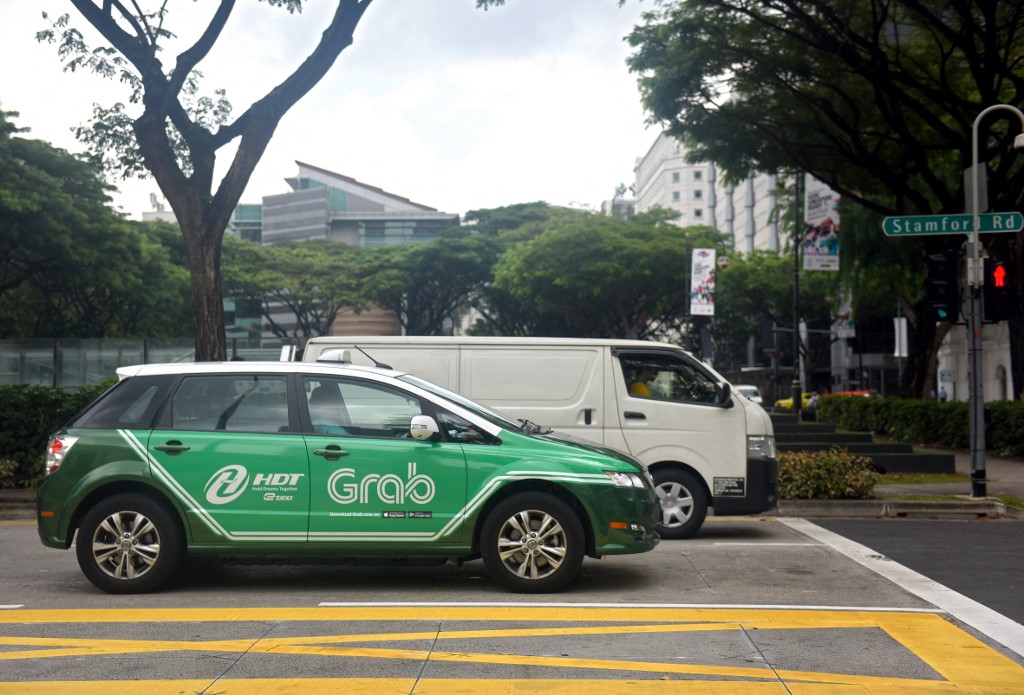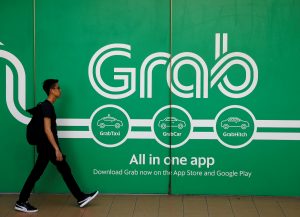(ATF) Less than a week after completing a Nasdaq listing via a $40 billion SPAC merger, Grab Holdings, South-east Asia’s ride-hailing to delivery giant, is considering a secondary listing in its home market Singapore Exchange (SGX), according to Reuters.
A household name across South-east Asia, Grab is in the early stages of considering a secondary listing in the city-state, said sources, since the SGX listing would enable its stakeholders including customers, drivers and merchant partners who are close its regional hub, easier access to trade its shares.
The potential Singapore listing plans come after Grab announced on Tuesday last week the $40 billion-merger with Altimeter Growth, a SPAC, making this the world’s biggest SPAC deal.
Read more: Chinese-owned Inter sign up to $6bn Euro Super League plan
As part of that SPAC merger, Grab raised $4bn from global investors including BlackRock, Temasek Holdings, Fidelity International, Malaysia’s Permodalan Nasional and some of Indonesia’s richest family groups.
While Grab and SGX declined to comment on the listing plans, “a secondary listing could well be a good move. You can get the best of both worlds,” said Raymond Tong, capital markets and M&A partner at law firm Rajah & Tann Singapore.
“If your home markets are in this region, a Singapore listing can help you tap another pool of investors as there are many family offices and funds based in Singapore,” added Tong.
Launched in 2012, Grab has become the largest ride-hailing firm in South-east Asia in just a few years operating across eight countries in the region as well as Japan.
HOUSEHOLD NAME
It is now considered a household name in the fast-growing region of 650 million people, where it provides not only transport but also food delivery and financial services. Japan’s SoftBank is a key investor.
The company moved its headquarters from Malaysia to Singapore in 2014.
In 2018, Grab cemented its position as South-east Asia’s biggest ride-hailing firm when it bought Uber’s operations in the region, ending a bruising battle for market share with its US-based rival that received a 27.5% stake in Grab in exchange.
Grab’s food business started in 2016, but got a boost following its acquisition of Uber’s South-east Asia operations.
When the coronavirus pandemic hit last year, Grab’s food delivery business boomed as people confined at home during lockdowns increasingly relied on takeaways.
FOOD REVENUES
As Grab’s transport business suffered, earnings from its food delivery service soared and now account for more than half of revenues, according to company executives.
The firm has also expanded into financial services like digital payments, and has been granted a licence to launch a digital bank in Singapore as part of a consortium.
While the details of how much Grab might aim to raise in any secondary listing, with financial terms and a timetable still in the early stages of consideration, the SGX listing would put Grab in the company of marquee names like DBS Group, currently worth about S$74bn ($55.4bn) by capitalisation.
But sources say since Grab has sufficient cash reserves, it could end up raising only a small amount on SGX, which would still be a big win for the exchange.
LOW LIQUIDITY
Hindered by a small base of retail investors in the city-state, SGX has struggled with low liquidity and valuations, forcing a spate of delistings and also discouraging big-ticket listings from regional high-growth companies.
Lately, SGX has mainly seen large IPOs from real estate investment trusts.
But for SGX to bulk up its stock market in recent years, Chief Executive Loh Boon Chye, who was appointed six years ago, had also acquired firms to transform itself into a multi-asset exchange.
Over the past three years, SGX-listed companies have raised about four times more funds in the secondary market than from primary fund raising.
SECONDARY LISTINGS
Currently, there are 28 companies with a secondary listing on SGX, including Malaysia’s IHH Healthcare Bhd and Top Glove Corp Bhd and Hong Kong conglomerate Jardine Matheson Holdings.
Last year, AMTD International became the first NYSE-listed firm to list on SGX. It also became the first to take advantage of a dual-class share structure in Singapore.
According to Altimeter CEO and founder Brad Grestner: “As one of the world’s largest and fastest-growing Internet companies, Grab is paving the digital path forward for the 670 million citizens of South-east Asia.”
Grab said it expects its total addressable market to grow from about $52bn in 2020 to more than $180bn by 2025 across online food delivery, ride-hailing and digital wallet payments.
- With reporting by Reuters.





















